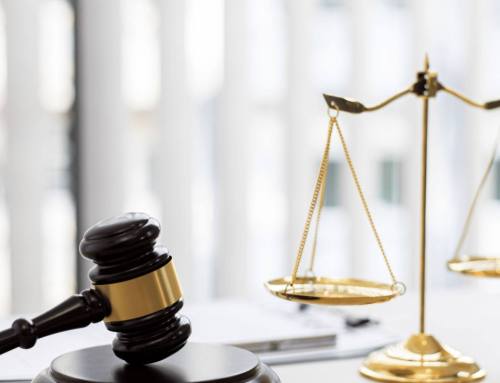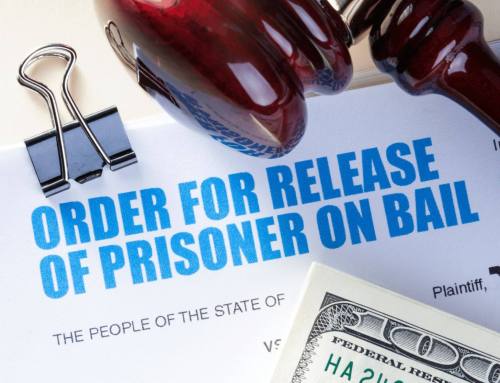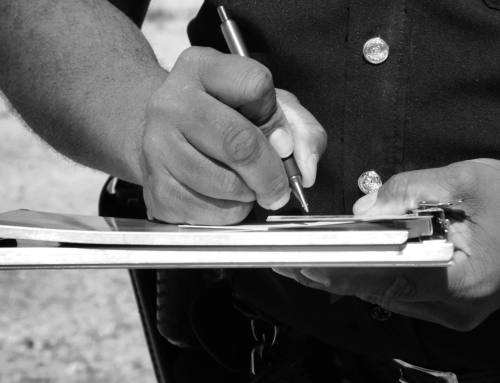What Is Las Vegas Bail and Why Might You Need It?
When someone is arrested and taken to jail, they have the choice to wait in jail until their trial concludes or bail out of jail using a bail bond.
While bail does not throw out your case, it does allow you to get out of jail long enough to organize your affairs.
Can You Post Bail Before Turning Yourself In?
There are a few instances where an arrestee may not be allowed to be released on bail. However, in many instances, bail is granted. For example, if you have been arrested for a nonviolent offense; if you do not have any previous criminal history; if you are simply a family member of the person who was arrested; or if you turned yourself in, you are more likely to be granted bail. If you do not have the money to post bail, your case will likely be continued with you being in custody even on non-court days until you can come up with the money.
What Are the Risks of Not Posting Bail?
If you are arrested, you should immediately post bail. Failure to do so can lead to serious consequences. There are a number of reasons why posting bail is important:
First, if you cannot post bail, your freedom will be taken away from you, and you may be held in custody until the case is resolved. This can lead to neighborhood stigma; neighbors may be frightened if they do not have the facts of your case and see you get arrested, only to come back months or years later.
In addition, you may incur losses, most notably a loss of income due to your inability to work during this period. If you rent a house, you may also find yourself being kicked out during this time.
Third, posting bail may help you gather evidence to build your case. If you can post bail, it will give you time to gather evidence and prepare your defense.
Finally, posting bail can give you some level of confidence in yourself. This means that the system has determined that you are not a flight risk or a danger to the community. Your attorney may add this to your argument, making it more difficult for the prosecution to win the case against you.
Las Vegas Bail: Can You Post Bail Before Turning Yourself In?
So, can you post bail before turning yourself in? Whether it is civil or in relation to criminal charges, the answer is typically no. This is because your bail is set at your first court appearance. It is not possible to simply make a phone call and ask how much your bail is. It’s also not worth it to call and ask: “Can You Post Bail Before Turning Yourself In?” No, you cannot.
Once you get your bail amount, however, it is important to know what your bail amount means and what you can do to get it lowered or eliminated. For example, you may be able to ask the judge to set your bail at a lower amount by convincing the judge that you are neither a flight risk nor a danger to the community. You will need to work with your attorney on these. In general, however, your bail amount is based on the severity of charges you are facing and whether or not you have a prior criminal history.
Once your bail is set, there are a few ways to post bail:
- You can pay the bail with cash or a check.
- If your bail is less that $3,000, you can pay the bail with a Visa or MasterCard.
- You can post a surety bond. A surety bond guarantees that you will appear in court, and the amount of the bond depends on the severity of your charge.
- You can ask a family or friend to post bail for you.
- You may post a property boond as bail.
- If you are eligible for release on your own recognizance, you may be released based on recognizance.
- You may get bail via a bondsman or cash bail agent.
What Happens if I Can’t Post Bail?
Now that we have answered the question: “Can You Post Bail Before Turning Yourself In,” we will look at what could happen if you can’t post bail.
If you cannot post bail, you will be taken into custody and transported to a correctional facility. You will remain here until you can post bail or until your next court hearing. In some very rare cases, if you cannot post bail because of your financial situation, the court may consider releasing you on your own recognizance (ROR). In even rarer circumstances, if you cannot afford to post bail, the court may decide to place you under house arrest.
So, what is an easy and sure-to-work way out?
If you can’t post bail, the best option that is available to you is to work with a bail bond agent. A bail bond agent can help you find the best option for your situation. You will likely have to pay a fee, but the agent will help you get back on your feet as soon as possible.
For example, the bail bond agent can ensure you get a surety bond. This type of bond involves the bail bond agent serving as a surety; they will guarantee that you will show up for your court date. They may also sign agreements on your behalf that indicate how much in fines or restitution you will pay if you don’t. Second, the bail bond agent may decide that it is better and faster to pay the money necessary to get out of jail. They will do that on your behalf.
All in all, a good bail bond agent, such as you will find at All N One Bail Bonds, will be able to help get you out of jail as quickly as possible and keep you safe while doing so.
Can You Go to Jail if You Don’t Turn Yourself in When You’re Supposed To?
If a person who has been charged with a crime does not turn themselves into the appropriate authorities, they could be subject to various penalties. First and foremost, if the person is caught before they turn themselves in, they could be arrested and held in custody until their case is resolved; i.e, no bail for them. Additionally, if the person has children’s custody, the custody of those children could also be taken away from them.
Thinking of Turning Yourself In?
When a warrant has been issued for your arrest, it can be a startling ordeal. Perhaps you’ve dealt with such a situation before, or perhaps you’re entirely new to the process. Either way, you may be thinking about turning yourself in.
Keep in mind that you don’t have to turn yourself in. You can wait until the authorities come to arrest you, but the decision is entirely up to you. Should you decide to turn yourself in, consider the following tips before you do.
Hire a Criminal Defense Attorney
Regardless of whether you’ve been charged with a minor or major crime, hiring an attorney is always in your best interests. He or she can direct you in what to say, how to act, and how to defend yourself against the prosecution. Should there be a hearing to set a bond, your attorney may be able to lower the bond amount or dismiss the bond completely.
Turn Yourself In at the Right Time
You are free to turn yourself in whenever you choose. But if you aren’t fond of spending a lot of time in the county jail, you may want to carefully choose when you turn yourself in. Mondays and Fridays are often the most inconvenient days, so you’ll want to aim for Tuesday, Wednesday, or Thursday.
On Mondays, law enforcement and county staff may be busy dealing with the weekend’s accumulation of arrests and may spend much of the day processing these arrests. On Fridays, you most likely won’t see a magistrate or judge before the end of the day. As a result, your bond may not be set by the weekend, and you could spend a few extra days in jail.
Even if you have an attorney, lawyers can’t speed up the bond setting process. They can most certainly help you in the bond hearing, but they can’t force a meeting with a magistrate or judge to get you home for the weekend.
So, if you turn yourself in early in the day and avoid busier days of the week, you can minimize your stay in jail and get back home more quickly. Contact Lightning Bail Bonds and they can advise you as to what day and time is best to turn yourself in.
Dress Comfortably and Only Bring What You Need
When you turn yourself in, you don’t need to dress up or bring much with you. Be sure you have an official photo ID with you, and you can bring cash, debit cards, or credit cards to post bail if necessary. Be sure not to bring any items that are considered contraband, such as pocket knives, nail files, and tobacco products. These items will most likely be taken during intake.
If you have a medical condition that requires specific medication, bring your medication with you. If your condition requires any special equipment or treatments, you may want to call the county jail and ask about their medical policies. You want to be sure you have what you need until you’re released.
Wear comfortable clothes that won’t wrinkle or pose a safety issue. Law enforcement officers may be forced to remove any belts, drawstrings or shoelaces because they can be a safety concern in jail. If you’re required to wear a jumpsuit during your stay, your clothes may be sealed in a bag and bunched up as a result. So, a good outfit to wear before you turn yourself in would consist of a t-shirt, jeans, and some slip-on shoes.
If you need reading glasses, you may be permitted to bring them with you. Also, keep in mind that you won’t be allowed to have your cell phone in jail, so it may be a good idea to write any necessary phone numbers on a small piece of paper to bring with you. This paper shouldn’t be taken during processing.
Exercise Your Right to Remain Silent
When questioned by any law enforcement personnel, it’s best to stay silent. You’re not required to answer any questions or explain yourself, and staying silent can help your case, no matter what may have happened or what you’ve been charged with.
When being questioned by an officer, simply relay to him or her that you are exercising your right to remain silent. You may even say you’re exercising your right to remain silent until you can meet and speak with your lawyer.
Even if your intention is to merely set the record straight, your words can be used against you in a court of law. You can easily say something wrong or poorly word a single answer. Such simple mistakes can make it easier for the prosecution to build a case against you, so rely on your criminal defense attorney for help.
Your lawyer can help you navigate the waters of police questioning and keep you from saying anything that will be used against you.
If a warrant has been issued for your arrest, you may be considering turning yourself in. And while the choice is entirely up to you, be sure you approach the situation carefully and thoughtfully to avoid unnecessary jail time and needlessly high bond amounts.
A criminal defense attorney may be able to reduce the bail amount for your release, but once the bond is set, depend on a reliable bail bond company for your quick release. At All N One Bail Bonds (Lightning Bail Bonds), we can help you post bail and swiftly get you home to your family. Just call us when you need us, and we’ll get to work right away. 702-333-2663






